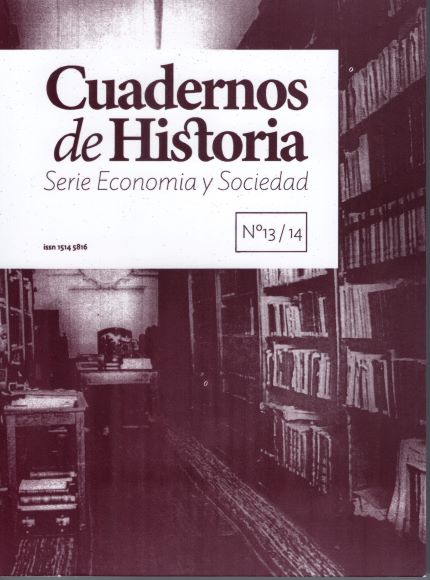«Ungidos por el infortunio». Los soldados de Malvinas en la post dictadura: entre el relato heroico y la victimización
DOI:
https://doi.org/10.53872/2422.7544.n13/14.11291Keywords:
Malvinas, Post Dictadura, Ex combatientesAbstract
El final de la Guerra de Malvinas (abril – junio de 1982) inicia el último
año de la dictadura militar que gobernó de facto la Argentina entre 1976 y
1983. En ese contexto, dominado simbólicamente por las denuncias por
violaciones a los derechos humanos y la conformación de la imagen pública
de los desaparecidos, las primeras agrupaciones de ex soldados combatientes
encontraron notables dificultades para participar en la discusión
pública a partir de su reivindicación de la experiencia bélica. Este trabajo
analiza las tensiones entre esta voluntad de participación y los sentidos
que el primer gobierno democrático asignó al conflicto armado del Atlántico
Sur.
References
Audoin – Rouzeau, S. & Becker, A. 2002, 14-18. Understanding the Great War, Hill and Wang, New York.
Guber, R. 2004, De chicos a veteranos. Memorias argentinas de la guerra de Malvinas, Antropofagia, Buenos Aires.
Hass, K. A. 1998, Carried to the Wall. American Memory and the Vietnam Veterans Memorial, University of California Press, Berkeley.
Lorenz, F. 2012, Las guerras por Malvinas. 1982 – 2012, Edhasa, Buenos Aires.
Mosse, G. 1990, Fallen Soldiers. Reshaping the Memory of the World Wars, Oxford University Press, Londres.
Novaro, M. & Palermo, V. 2003, La dictadura militar 1976-1983: del golpe de Estado a la restauración democrática, Paidós, Buenos Aires.
Prost, A. 1996-97, “Monuments to the Dead” en Nora, P. (dir.); Realms of Memory. The Construction of the French Past (Volumen II: “Traditions”), Columbia University Press, Nueva York.
Winter, J. 1995, Sites of memory, Sites of Mourning. The Great War in European Cultural History, Cambridge University Press, Cambridge.
Downloads
Published
Issue
Section
License
Copyright (c) 2015 Cuadernos de historia. Serie Economía y Sociedad

This work is licensed under a Creative Commons Attribution 4.0 International License.
Authors publishing in this journal accept the following terms:
a. The author maintains their copyrights and grants this journal the publication of the first original version of their work that is subject to the Creative Commons Attribution License 4.0. This license agreement allows:
Sharing — copy and redistribution of the published material by any means and formats
Reusing — remix, change, and creation of new material from the published work for any purpose, including commercial use.
b. Authors may enter other non-exclusive license agreements of distribution of the version of the published work (i.e. uploading the material on an institutional virtual archive or republishing it on a monographic volume) as long as they attribute the publication of the original version to this journal.
c. It is allowed and recommended that authors publicize their work on the Internet (i.e. on institutional virtual archives or on their personal or professional websites) after their work has been published in this journal.




